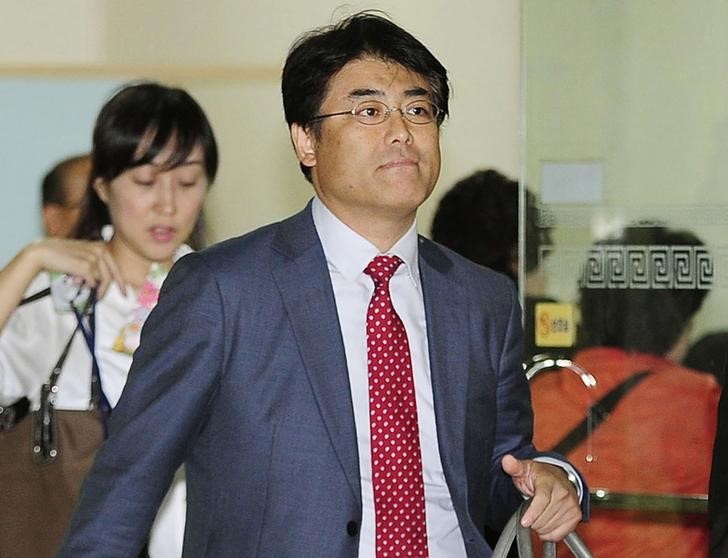By Sohee Kim
SEOUL (Reuters) - South Korea lifted a travel ban on a Japanese journalist on trial for a charge of defaming South Korean President Park Geun-hye, a prosecution official said on Tuesday, removing what has been an irritant in bilateral relations.
South Korean prosecutors in October indicted the former Seoul bureau chief of Japan's Sankei Shimbun newspaper, Tatsuya Kato, after concluding a news article he wrote about Park on Aug. 3 was based on "false information".
An official at the prosecutors' office said the travel ban on Kato had been lifted. South Korean media said the decision was made on "humanitarian consideration" because Kato's mother is ailing and he has been apart from his family in Japan for eight months.
Kato was not arrested but had been barred from leaving South Korea. A spokesman for the newspaper in Tokyo said Kato would return to Tokyo later in the day.
Sankei welcomed the move but criticised the trial. "This is a serious infringement of freedom of speech and we demand that the charges be dropped immediately," Takeshi Kobayashi, chief editor at Sankei's Tokyo head office, said in a statement - a sentiment echoed by the Japanese government.
"We will continue to call on the South Korean government for an appropriate response," Chief Cabinet Secretary Yoshihide Suga told a news conference.
The Aug. 3 report in Sankei related to Park's whereabouts on April 16 last year, the day a ferry carrying 476 people capsized and sank. More than 300 people died in the country's worst maritime disaster in more than 40 years.
Japan has protested the indictment, saying it was regrettable and that Tokyo was concerned the legal action could infringe press freedom and hurt bilateral ties.
South Korea countered that the case simply followed legal principles. "This is irrelevant to ROK-Japan relations and it is not appropriate to make the issue into a diplomatic problem," said Noh Gwang-il, Ministry of Foreign Affairs spokesman.
Relations between the two countries have cooled over what South Korea sees as Japanese leaders' reluctance to properly atone for the country's colonial wartime past, especially over the issue of Korean "comfort women", as those forced to work in Japanese military brothels during World War Two are known.
Both nations and China have sought to overcome diplomatic tension, pledging at a foreign ministers' meeting last month to work toward a summit of their leaders.

On Tuesday, South Korea was scheduled to host a meeting of security officials from Japan for the first time in more than five years.